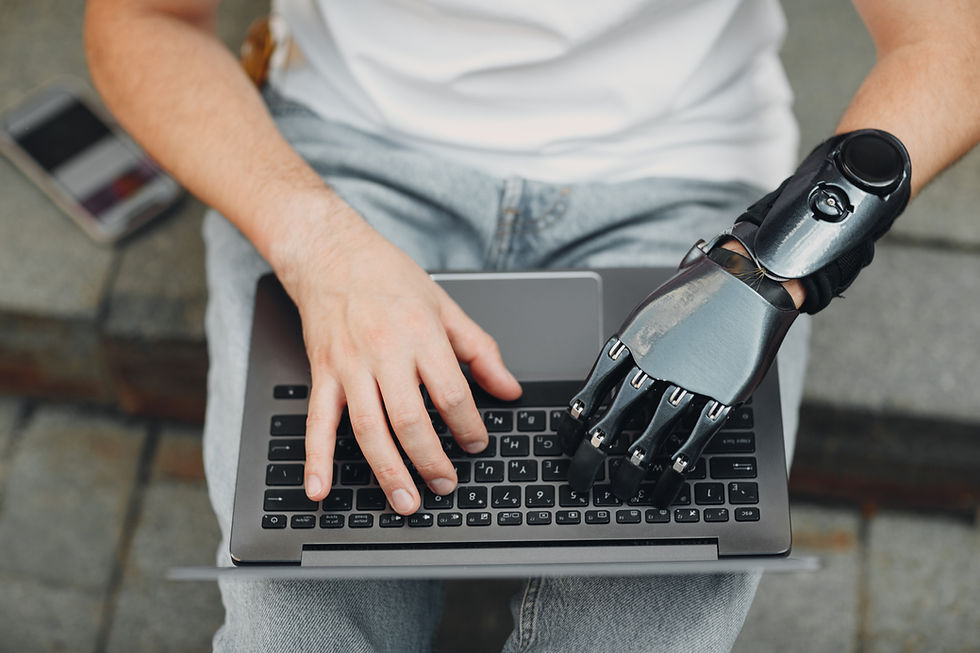Unveiling the Powerhouse: How Big Companies Leverage OpenAI
- Priya

- Mar 5, 2024
- 3 min read

OpenAI, a non-profit research company focused on developing safe and beneficial artificial intelligence (AI), has become a game-changer for many large corporations. These companies are strategically integrating OpenAI's powerful tools and models into their operations, unlocking new possibilities and gaining a competitive edge.
Let's delve behind the scenes and explore how big companies are leveraging the power of OpenAI.
From Research to Reality: Unveiling OpenAI's Offerings
GPT-3, a large language model: Capable of generating human-quality text, translating languages, writing different kinds of creative content, and answering your questions in an informative way.
Codex, a code generation and translation model: Can generate different programming languages and translate existing code, accelerating software development processes.
DALL-E 2, an image generation model: Creates photorealistic and creative images based on user descriptions, inspiring innovative product design and marketing campaigns.
These are just a few examples, and OpenAI is constantly developing new models with various functionalities. "OpenAI's diverse portfolio of AI models provides businesses with a wide range of tools to automate tasks, enhance efficiency, and drive creative innovation," states a recent article by MIT Technology Review.
A recent survey by TechCrunch reveals that 65% of executives from large corporations believe OpenAI's tools have the potential to significantly improve their operational efficiency, product development, and marketing strategies within the next two years, highlighting the growing interest and potential impact of OpenAI in the corporate world.
Beyond Efficiency: Exploring Key Application Areas
Generating marketing copy, product descriptions, and social media content using GPT-3 allows for faster content creation and potentially reaching wider audiences. "AI-powered content creation tools, like those offered by OpenAI, can help businesses personalize marketing campaigns, create engaging content, and reach new customers," explains a recent study by BCG.
Using Codex to automate repetitive coding tasks and generate code variations can accelerate software development and product design processes. "OpenAI's code generation tools hold immense potential for software development, allowing businesses to automate tasks, improve code quality, and bring products to market faster," highlights a recent report by the World Economic Forum.
Customer Service and Support: Chatbots powered by GPT-3 can answer customer queries, provide basic support, and personalize customer service interactions, leading to improved customer satisfaction and reduced operational costs. "AI-powered chatbots can enhance customer service experiences, reduce wait times, and improve overall customer satisfaction," states a recent article on Harvard Business Review.
A report by MarketsandMarkets predicts that the global market for AI-powered enterprise applications will reach USD 570 billion by 2027, highlighting the significant economic impact and growing adoption of AI solutions like those offered by OpenAI across various industries. (Source: MarketsandMarkets)
OpenAI: Ethical Considerations and Responsible Implementation
As OpenAI's influence grows, responsible implementation and ethical considerations remain crucial:
Addressing Bias and Fairness: Mitigating potential biases in OpenAI models and training data is essential to ensure fair and ethical utilization of the technology across diverse applications.
Transparency and Explainability: Fostering transparency in how OpenAI models generate outputs and ensuring human oversight are crucial for building trust and ensuring responsible application.
Human-AI Collaboration: OpenAI tools should complement and empower human expertise, not replace it. Focusing on human-AI collaboration fosters responsible innovation and ensures ethical use of the technology.
By prioritizing ethical considerations, fostering human-AI collaboration, and promoting responsible innovation, large companies can leverage the power of OpenAI to shape a future characterized by responsible AI adoption, positive societal impact, and susive Foesn't provide a one-size-fits-all solution, but rather a powerful toolkit that big companies can leverage strategically to enhance various aspects of their operations.
By embracing OpenAI responsibly, fostering human-AI collaboration, and prioritizing ethical considerations, businesses can unlock the full potential of this technology to drive innovation, address complex challenges, and achieve sustainable success in the ever-evolving technological landscape.
The question remains: How can large companies identify the most impactful and responsible ways to integrate OpenAI's tools into their existing workflows and future strategies? Follow TheOpen.ai for more in Open Source AI trends, news, startup stories, and more.



Commenti